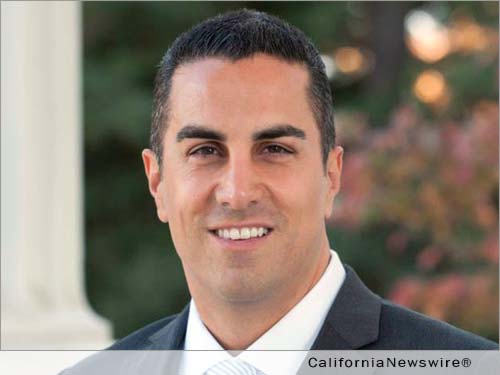
SACRAMENTO, Calif. /California Newswire/ — Could thousands of rapes and murders go unsolved in California because of problems with a ballot initiative? asks Assemblyman Mike Gatto. Unfortunately, yes. If the California Supreme Court upholds a lower court decision, California’s DNA testing law could be thrown out. The Assembly Public Safety Committee voted 6 to 1 to pass Gatto’s (D-Glendale) legislation, which is a rare example of the legislature seeking to proactively fix these problems. Assembly Bill 84 is an omnibus DNA bill that also contains other improvements to DNA collection laws.
In December 2014, a California Court of Appeal struck down California’s criminal-DNA-testing program (Proposition 69) in People v. Buza, finding several aspects unconstitutional and dealing a huge setback to law enforcement’s ability to solve crimes. In February, the California Supreme Court granted review of the Buza decision. While the Supreme Court considers the case, DNA collection of felony arrestees has temporarily resumed.
“The Buza decision could cripple law enforcement, preventing them from using DNA to solve crime,” said Gatto, who specialized in constitutional law as a lawyer before being elected to the legislature.
“It’s time to overhaul the system to make sure that best practices are implemented, the constitution is respected, the innocent are exonerated, and the guilty are brought to justice.”
Gatto’s legislation aims to address the court’s concerns with Prop. 69 by allowing DNA to be collected from those arrested for serious or violent felonies, and upon court process and a finding of probable cause. To protect the wrongfully accused, arrested, charged, or convicted, the DNA sample can be destroyed if the case is dismissed, or the accused acquitted or otherwise exonerated. These components are expressly contingent on the Supreme Court upholding the Buza decision.
AB 84 also seeks to resolve the controversies engendered by another problematic ballot initiative, Proposition 47. It strikes a thoughtful path, by expanding the collection of DNA from those convicted of very serious and violent misdemeanors, such as assault with a deadly weapon. Currently, the only misdemeanor convictions that require collection of DNA are those that require the convicted to register as a sex offender. AB 84 would expand that list to include 17 misdemeanor crimes that are very serious and preclude an offender from owning a firearm.
This legislation would also establish best practices for allowing buccal swab samples to be taken as a condition of a plea or dismissal of charges, provided that all uses of the DNA sample have been disclosed to the defendant in writing and the defendant has signed a written agreement.
“The people of California are sympathetic to persons who spend years in jail for minor crimes, but we remain sickened by violent criminals who escape justice and reoffend,” said Gatto. “AB 84 is a balanced, comprehensive bill that will improve our state’s DNA-testing program.”
Gatto has attempted to reform the initiative process many times, including a proposal for expert legislative counsel to offer amendments to proposed ballot initiatives so that errors can be corrected before a vote takes place.
Mike Gatto is the Chairman of the Consumer Protection and Privacy Committee, and the longest-serving current member of the State Assembly. He represents California’s 43rd Assembly District, which includes Burbank, Glendale, La Cañada Flintridge, La Crescenta, Montrose, and the Los Angeles neighborhoods of Atwater Village, East Hollywood, Franklin Hills, Hollywood Hills, Los Feliz, and Silver Lake. www.asm.ca.gov/gatto







